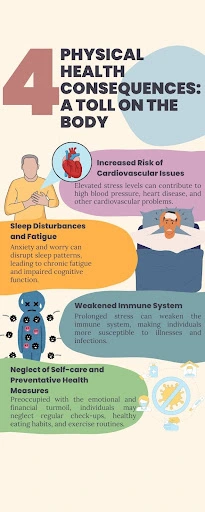In the intricate tapestry of the modern workforce, the looming specter of wrongful termination stands as a stark reminder of the fragility of justice in our society. Martin Luther King Jr.’s words echo through the corridors of time, serving as a clarion call to confront the pervasive injustices that plague our workplaces. As we stand at the crossroads of corporate ethics and individual rights, the repercussions of wrongful termination reverberate far beyond the confines of the office walls.
Join us as we delve into the heart of this pressing issue, where the lines between right and wrong blur, and the human toll of corporate misconduct becomes painfully evident. Through the lens of those who have endured the tumultuous aftermath of unjust dismissal, let’s explore the labyrinth of psychological anguish, financial devastation, and reputational ruin.
As we navigate the complexities of wrongful termination and its profound impact on employee wellbeing, let us heed the call to action embodied in King’s timeless words. Together, let us strive for a future where justice prevails, and everyone is afforded the dignity and respect they rightfully deserve in the workplace.
The Psychological Toll: A Harrowing Experience
Emotional Distress and Trauma
When an employee is wrongfully terminated, the sense of injustice and betrayal can trigger intense emotional distress and trauma. The abrupt disruption to their professional life can leave them feeling violated, angry, and deeply hurt. In such situations, seeking support from a lawyer for wrongful termination in Los Angeles may be advisable to understand one’s legal rights and options.
Anxiety and Panic Attacks
The uncertainty surrounding their future and the loss of a stable income can breed constant worry and anxiety.
Depression and Low Self-Esteem
The unjust termination can shatter an individual’s self-confidence and self-worth, leading to feelings of depression and worthlessness.
Strained personal relationships
The emotional strain can spill over into personal relationships, causing conflicts and tensions with loved ones.
The Financial Burdens: A Devastating Blow
The financial consequences of wrongful termination can be crippling, leaving individuals and their families in a precarious situation. The immediate loss of income and benefits can quickly deplete savings and lead to mounting debt.
Losing a stable source of income can have far-reaching effects, including:
Loss of Income and Benefits
One of the most immediate and tangible consequences of wrongful termination is the loss of income and employee benefits. Suddenly, finding oneself without a steady paycheck can plunge individuals into financial turmoil, making it challenging to meet basic needs such as housing, food, and healthcare.
Difficulty Finding New Employment
Wrongful termination can cast a long shadow over an individual’s career prospects, making it difficult to secure new employment. Employers may view terminated employees with suspicion or skepticism, fearing that they were dismissed for performance or behavioral issues. As a result, wrongfully terminated individuals may face prolonged unemployment or be forced to accept positions beneath their qualifications and skill level.
Depleted Savings and Potential Debt
The financial fallout from wrongful termination extends beyond the immediate loss of income, impacting long-term financial security. Depleted savings, drained retirement accounts, and accrued debt are common consequences as individuals struggle to make ends meet during unemployment. In some cases, wrongfully terminated employees may be forced to take on additional debt or liquidate assets to cover essential expenses, further exacerbating their financial distress.
Impact on Family and Dependents
The financial strain of wrongful termination reverberates throughout the entire family unit, affecting spouses, children, and dependents. Parents may struggle to provide for their families, causing strain on marital relationships and parental dynamics. Children may also feel the impact, experiencing heightened stress and anxiety as they witness their parents’ struggles and adapt to changes in their family’s financial situation.
The financial strain can be further exacerbated by the difficulty of finding new employment, particularly in industries with high competition or specialized roles.
Reputational Damage: A Lasting Stigma
Wrongful termination can leave a lasting stain on an employee’s professional reputation, making it challenging to rebuild their career.
The reputational damage can manifest in various ways, including:
Difficulties with Professional References
Former employers may be reluctant to provide positive references, or their references may be tainted by the circumstances surrounding the termination.
Challenges in Networking and Career Advancement
Networking is crucial in career advancement, but wrongful termination can sever valuable professional connections and networks. Former colleagues and industry peers may distance themselves from the terminated employee out of fear of association or reprisal from the employer. As a result, wrongfully terminated individuals may find themselves isolated from valuable networking opportunities and industry contacts, hindering their career progression.
Loss of Industry Connections and Contacts
Valuable professional relationships and contacts may be severed, hindering future job prospects and career growth. Employers may blacklist terminated employees, making it challenging for them to secure employment within their field or industry. This loss of professional credibility and standing can have long-lasting implications for the terminated employee’s career trajectory and prospects.
This reputational damage can be particularly detrimental in specialized fields or tight-knit industries, where word travels quickly and professional networks are crucial for career advancement
Legal Battles and Their Consequences
Many wrongfully terminated employees pursue legal action against their former employers for justice and rightful compensation. However, this path is often fraught with emotional, financial, and practical challenges.
The emotional and mental strain of legal proceedings can be overwhelming, with the constant stress and uncertainty taking a toll on an individual’s wellbeing. According to U.S. District Court Case Statistics, the median time for a wrongful termination case to reach trial is around 2 years, leading to prolonged stress and anxiety.
Furthermore, the financial costs of litigation can be substantial, potentially draining resources that could have been used for living expenses or finding new employment. Legal fees, court costs, and potential settlements or judgments can add to the financial burden already faced by the terminated employee.
Even if the legal battle is successful, the long-term impact on future employment prospects can be significant. Potential employers may view the legal action as a red flag, making it harder for the individual to secure new job opportunities.
Physical Health Consequences: A Toll on the Body

The cumulative stress and strain of wrongful termination can take a severe toll on an individual’s physical health, including:
In extreme cases, the stress and emotional turmoil may lead to unhealthy coping mechanisms, such as substance abuse or self-destructive behaviors, further compounding the physical and mental health risks.
Conclusion
The far-reaching consequences of wrongful termination on employee wellbeing are undeniable and warrant immediate attention from employers, policymakers, and society. By shining a light on these devastating impacts, we can work towards creating a more just and equitable workplace environment where employees are treated with dignity and respect.
If you or someone you know has experienced wrongful termination, remember that you are not alone. Seek support from legal professionals, counselors, and advocacy groups dedicated to protecting employee rights. Together, we can create a future where the injustice of wrongful termination is a relic of the past, and employee wellbeing is prioritized above all else.
Frequently Asked Questions
How can employers mitigate the risks of wrongful termination and protect employee wellbeing?
Employers can mitigate the risks of wrongful termination and protect employee wellbeing by implementing robust policies, providing clear communication, offering legal compliance training, and fostering a culture of transparency and fairness. Establishing well-documented disciplinary procedures, adhering to employment laws, and providing avenues for employee feedback and appeals can help prevent unjust terminations and protect both parties.
What legal recourse is available to employees who have been wrongfully terminated?
Employees who have been wrongfully terminated may have legal recourse through various channels, such as filing a complaint with the Equal Employment Opportunity Commission (EEOC) or pursuing a wrongful termination lawsuit in civil court. It is advisable to consult with an experienced employment lawyer to understand the specific legal options available based on the circumstances of the case.
How can individuals cope with the emotional and practical challenges of wrongful termination?
Coping with the emotional and practical challenges of wrongful termination requires a multifaceted approach. Seeking professional counseling or joining support groups can provide a safe space to process the emotional turmoil. Developing a financial plan, exploring new job opportunities, and contacting professional networks can help address practical concerns. Additionally, prioritizing self-care through exercise, healthy eating, and stress management techniques can support overall wellbeing during this difficult time.
